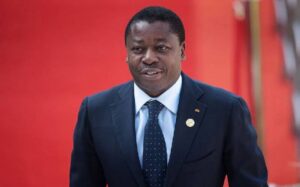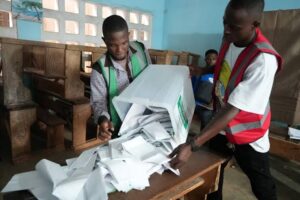Togo’s political landscape witnessed a decisive outcome as the ruling Union for the Republic party (UNIR) clinched a commanding majority in the legislative elections held on April 29th. According to provisional results released by the electoral commission, UNIR secured a staggering 108 out of the 113 parliamentary seats, solidifying its dominance in the country’s political arena.
Against the backdrop of heightened political tensions fueled by the recent approval of a contentious new constitution and a series of opposition protests crackdowns, the electoral triumph of UNIR paves the way for President Faure Gnassingbé to extend his 19-year tenure. The newly enacted charter grants Gnassingbé the opportunity to assume the role of “president of the council of ministers,” akin to a prime minister, as the leader of the majority party in parliament.
Also, read; US and French Governments Urge Nigeria to Host Their Military Bases Within Its Borders
Under the previous constitutional framework, Gnassingbé would have been restricted to running for the presidency just one more time, potentially culminating in a five-year term commencing in 2025.
However, with the establishment of the new post, opposition parties allege that Gnassingbé could circumvent these term limits, perpetuating his family’s longstanding grip on power as long as UNIR maintains its parliamentary dominance.
Despite opposition parties’ hopes of gaining ground in parliament to challenge UNIR’s supremacy, the resounding electoral victory underscores the ruling party’s continued stronghold over Togo’s political landscape. While regional observers expressed overall satisfaction with the election process, opposition factions have decried alleged irregularities in the voting procedures.
Gnassingbé’s ascension to power in 2005 following the demise of his father, Gnassingbé Eyadéma, who ruled Togo for nearly four decades, marked a pivotal moment in the country’s political trajectory.
With UNIR’s sweeping triumph in the legislative elections, the trajectory of Togo’s governance appears set to continue under Gnassingbé’s leadership, prompting scrutiny and debate over the consolidation of power and democratic principles in the West African nation.

